On April 18, 2022, Gizmodo began releasing once-confidential Facebook documents, once the only accessible to members of Congress and the media. As of May 2, we’ve published more than 1,000 pages of what’s come to be known as the Facebook Papers. Here are some highlights from our first two releases, which cover the 2020 election, the Jan. 6 attack on the U.S. Capitol, and the processes behind Facebook’s ranking algorithms. We’ve also put together a table of contents for all the documents that we will continue to update as we publish more.
Americans believed Facebook played a part in the lead-up to the Jan. 6 attack
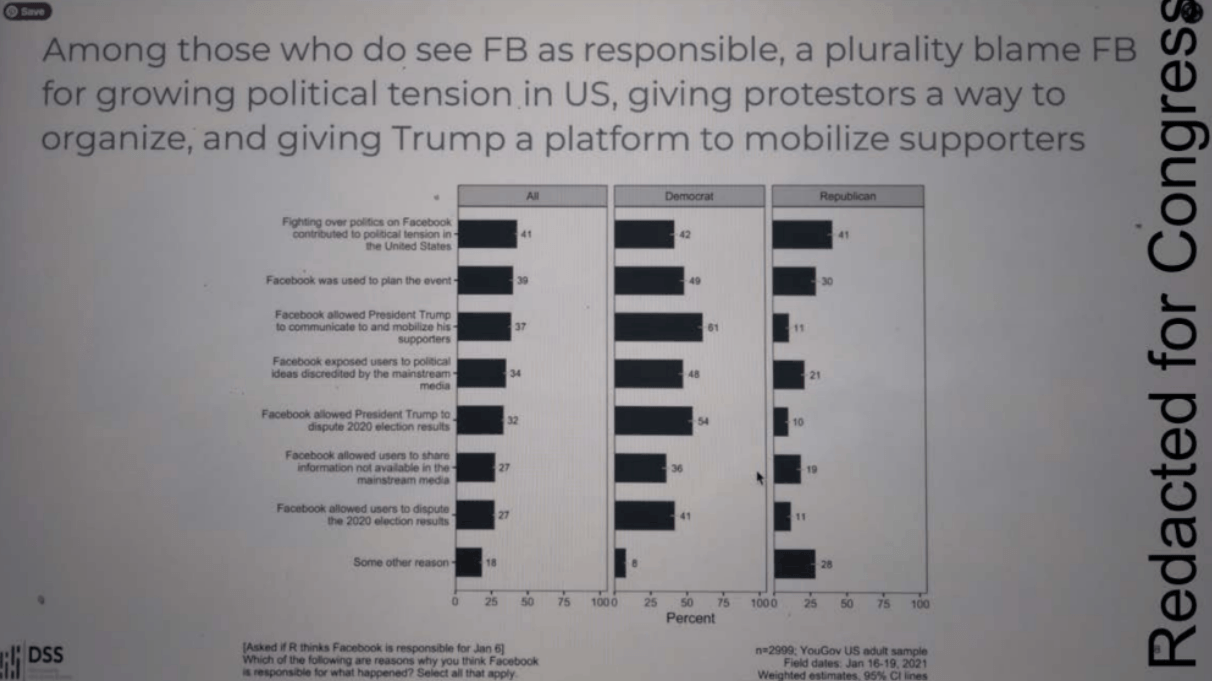
Ten days after the Jan. 6 attack at the Capitol, Facebook put out a poll. It showed that a majority of Americans held the company partially responsible for the attack. Around 30% of users believed Facebook only “a little” responsible, whereas 14% found it a “great deal” to blame.
Many Facebook employees also believed the company was culpable for the Capitol riot
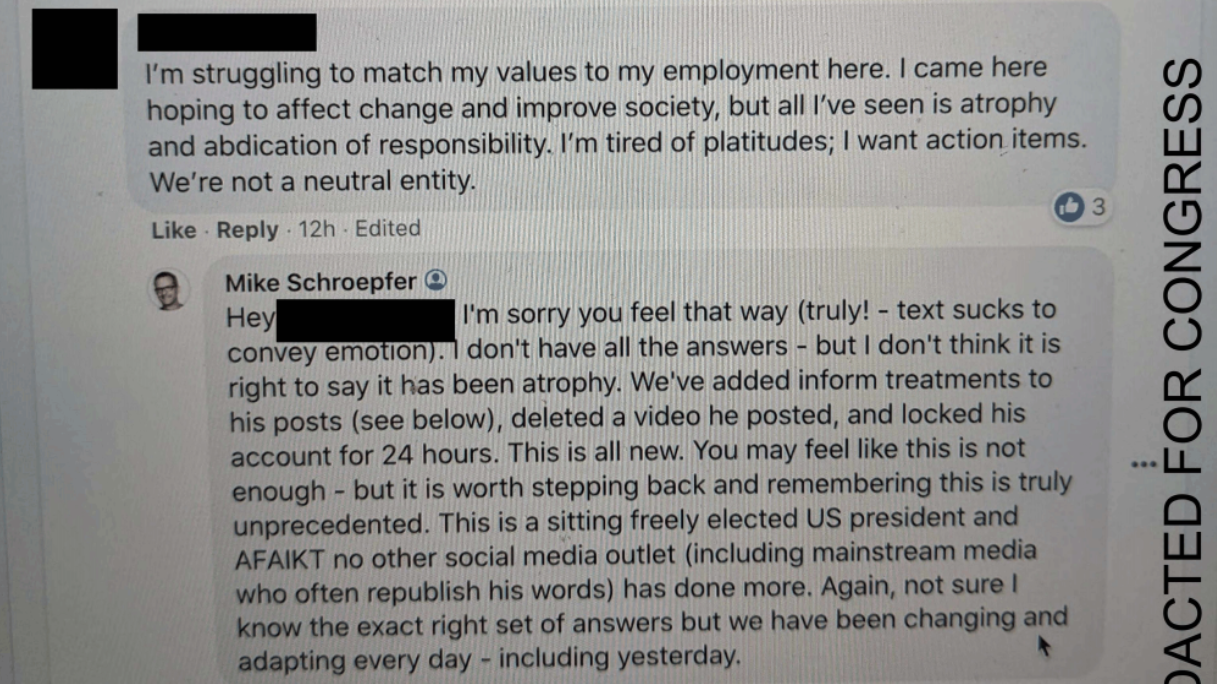
In the aftermath of the attack, Facebook CTO Mike Schroepfer called on his staff to “Hang in there” in an internal company forum. Several employees fired back, pinning blame for the events of Jan. 6 on Facebook’s handling of Donald Trump and misinformation around the election. Comments by Schroepfer and CEO Mark Zuckerberg are openly regarded as hollow platitudes. “We’ve been fuelling this fire for a long time and we shouldn’t be surprised it’s now out of control,” one employee said.
Jan. 6 saw huge influx of Facebook abuse reports
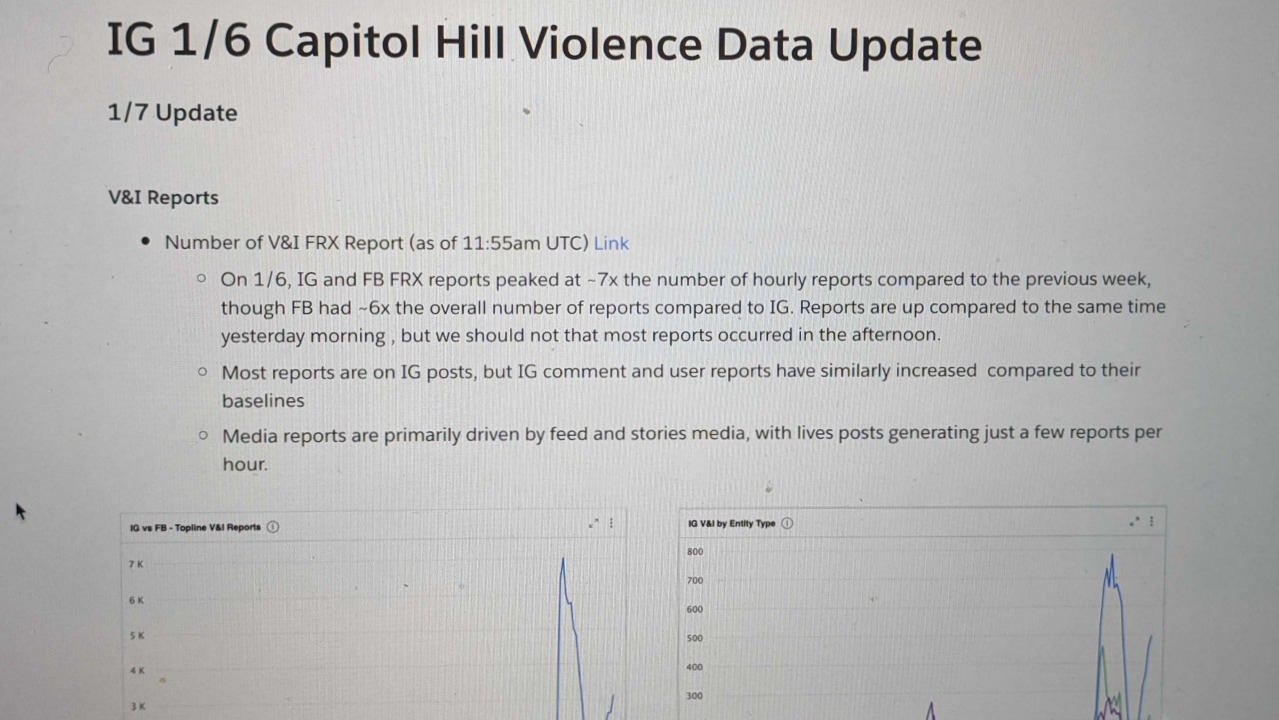
A Facebook team tasked with preventing “potential offline harm” registered a massive increase in abuse reports around the Jan. 6 attack — approximately seven times the normal rate across Facebook and Instagram combined, according to an internal report. Many of the flagged posts “called for violence, suggested the overthrow of the government would be desirable, or otherwise voiced support for the protests,” the report read.
Instagram’s own employees thought it was ill-equipped against violent content during the Capitol attack
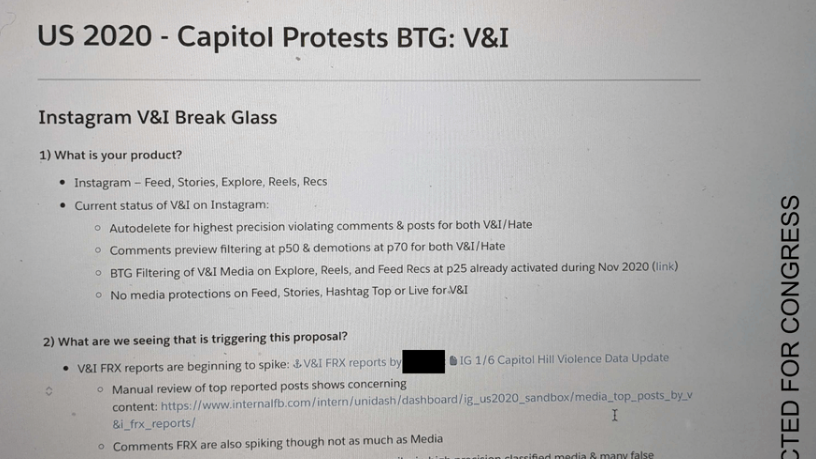
Instagram employees reported that there were “no existing” protections against an onslaught of violent content in places like the app’s list of most widely used hashtags in the aftermath of Jan. 6, which left the violating content up and users potentially exposed to it. “No media protections on Feed, Stories, Hashtag Top or Live…” one internal report read. Under the heading “What business as usual is failing,” an employee wrote there were no protections against violence and incitement (V&I) across several of the app’s key features.
Facebook employees wonder if their algorithmic feed is good for users, conclude it might not be
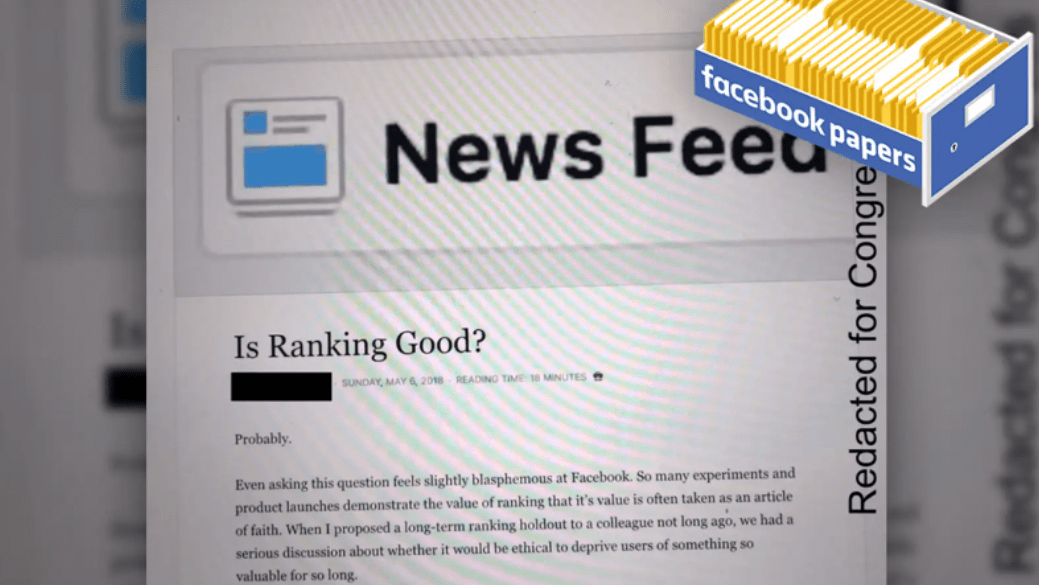
In Gizmodo’s second drop of the Facebook Papers, a note authored by an unknown employee dissects benefits and drawbacks of “ranking” content across users’ News Feeds. The note acknowledges ranked feeds increase screen time, while positing they reduce the quality of a users’ friends list. “Insofar as problematic content is often more engaging than unproblematic content, ranking-by-engagement runs the risk of favouring the problematic,” the employee wrote.
Facebook is unsure what censorship actually is, employee says
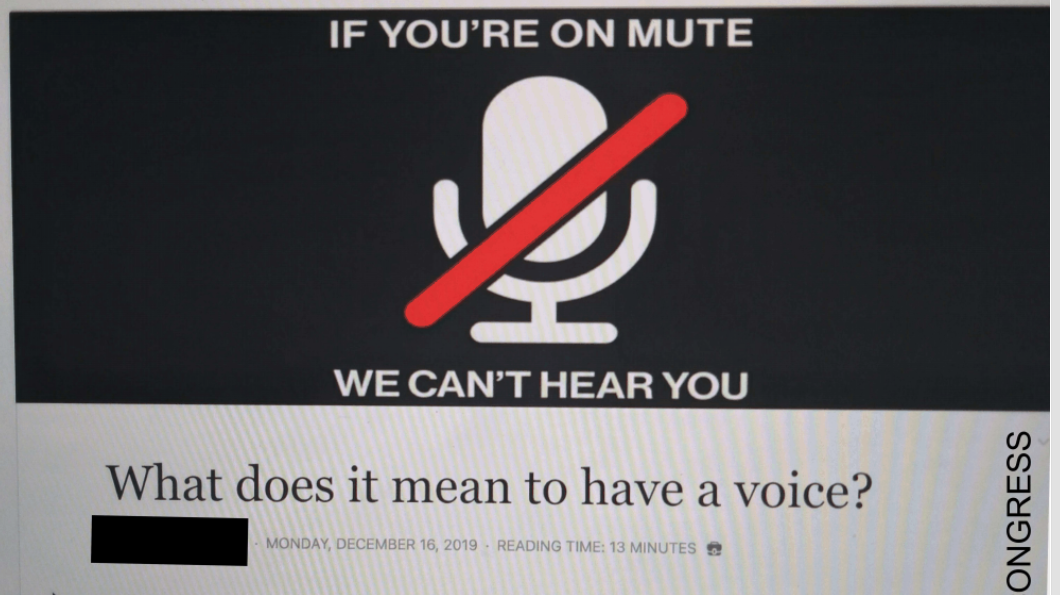
In another note from 2019, an employee discusses what it means to be “silenced” and to “have a voice” on the platform in regards to ranking. “While there are very valid concerns around voice, we currently have no way to meaningfully respond to them,” they argue. “We don’t have clear definitions for what voice or the negation of it, i.e. silencing, means…”
Facebook ranking ‘too complex’ to be understood

In a Sept. 2020 note, a Facebook employee argues that increasing transparency around how content is demoted in people’s feeds won’t necessarily help users understand how “legitimate” or “justified” those demotions are. At the top of the note, they write: “People fail to understand the idea of demotions out of context, no matter how we try to frame it,” adding the concept itself is “too complex.”
